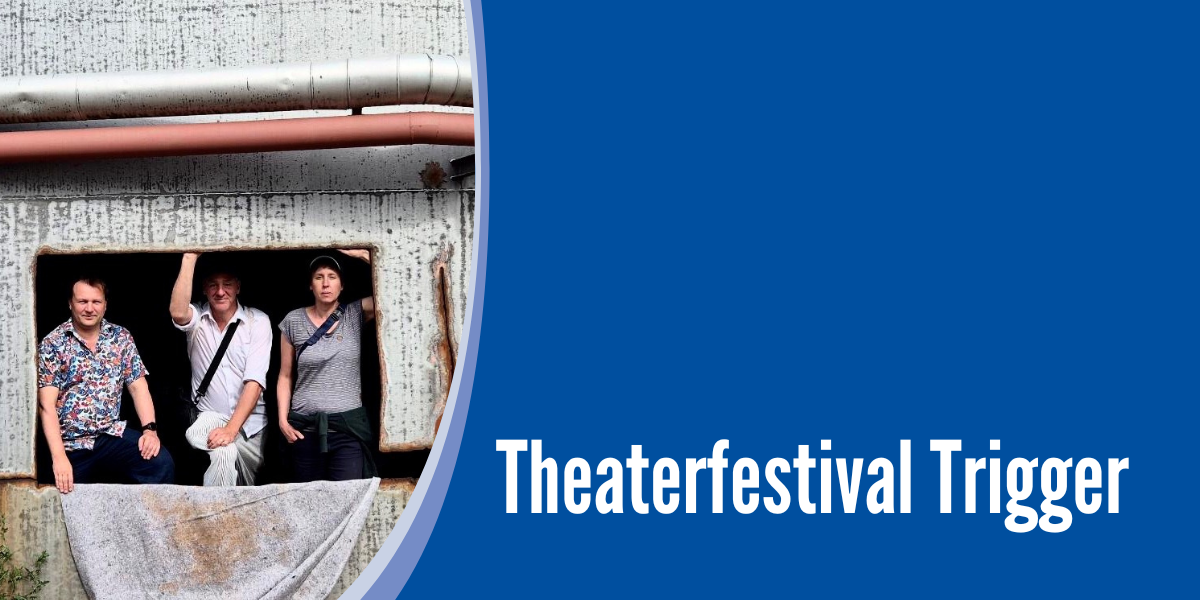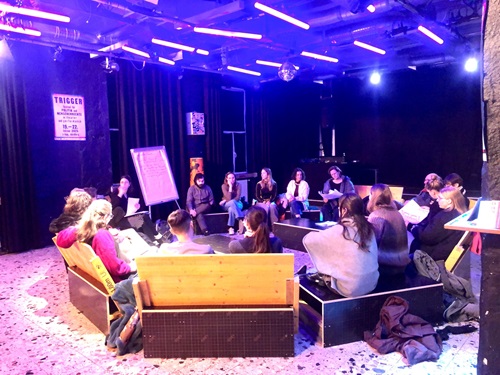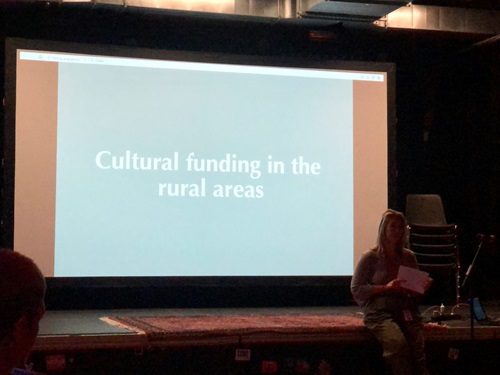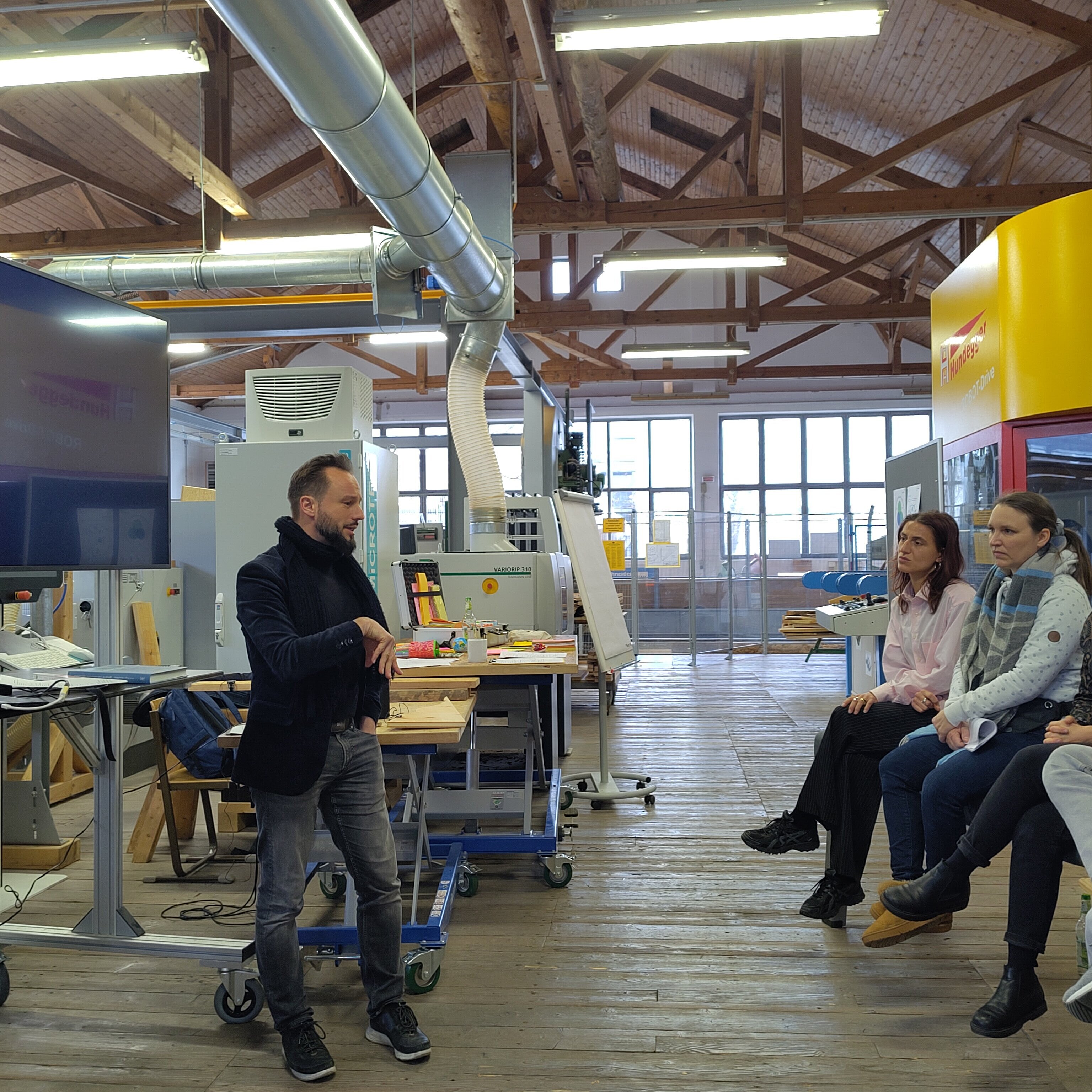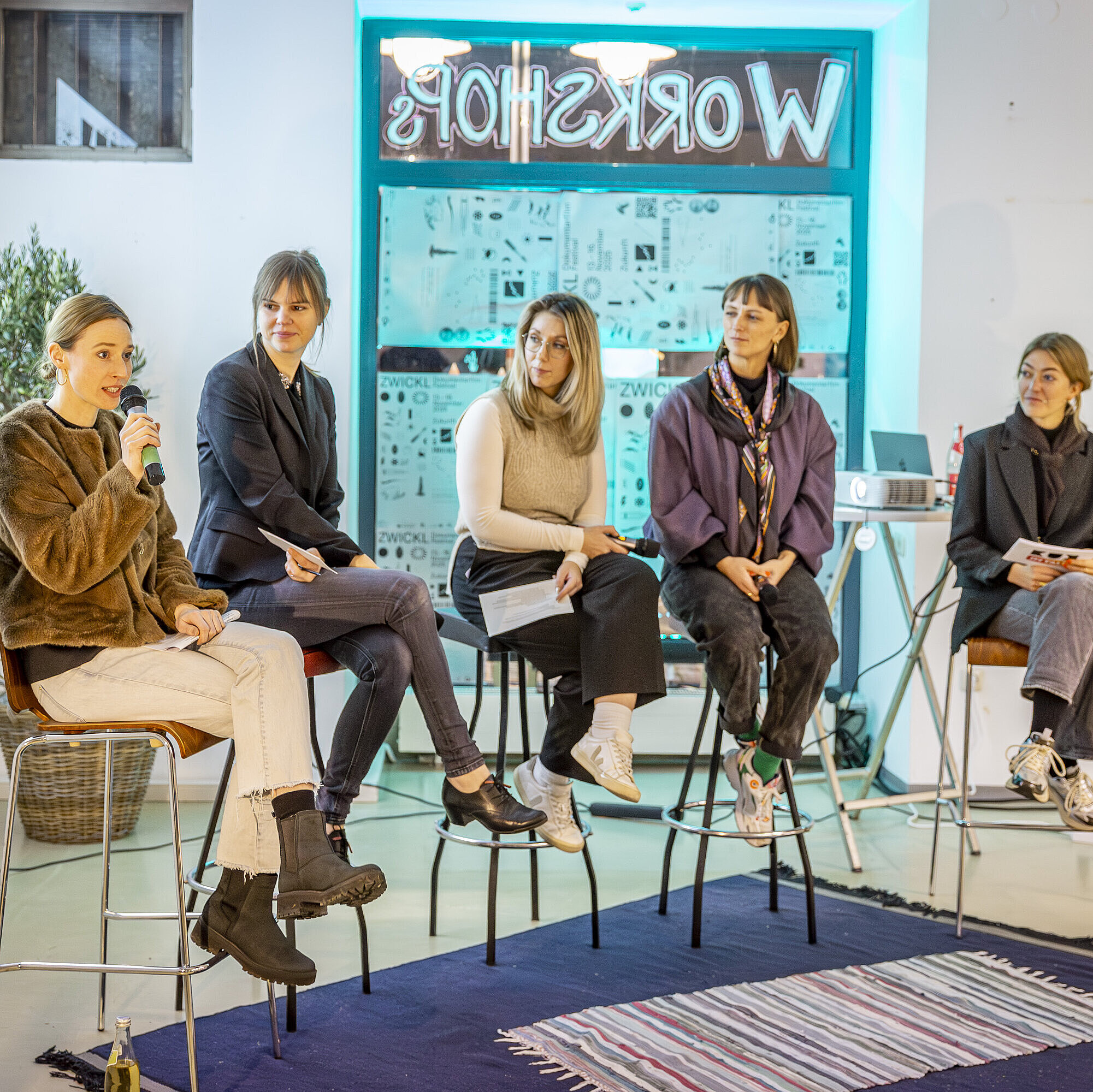"ANGE-TRIGGERT" as part of the theater festival TRIGGER | Networking for the independent scene - funded by the KKW guideline
18.08.2025
TRIGGER - Nuremberg Festival for Politics and Human Rights in Theater and Performance
From February 19 to 21, 2025, the Nuremberg "TRIGGER - Festival for Politics and Human Rights in Theatre and Performance" brought together artists and cultural workers, associations and production houses in the Z-Bau in Nuremberg with its "ANGE-TRIGGERT" format. Central topics of the independent performing arts were discussed in three "round tables" - from spatial issues to sustainable production methods and collaborations.
Funded by the Bavarian State Ministry of Economic Affairs, Regional Development and Energy (StMWi), the project strengthens networks, promotes knowledge transfer and provides new impetus for the cultural and creative industries in Bavaria. In this interview, the festival team reports on concrete successes and the long-term prospects for the scene as well as experiences with the application process.
"Our project was primarily aimed at networking and knowledge transfer."
TRIGGER - Nuremberg Festival for Politics and Human Rights in Theater and Performance
Can you tell us about your project and its added value for the cultural and creative industries in Bavaria in a few sentences? What makes your project special?
As part of our festival "TRIGGER - Nuremberg Festival for Politics and Human Rights in Theater and Performance", we launched the new discourse format "ANGETRIGGERT" in February 2025. In three "round tables", we addressed central topics of the independent performing arts in Bavaria - from space issues to resource sharing and funding structures.
Together with the Association of Independent Performing Arts in the Nuremberg Metropolitan Region - FreieSzeneNbg e. V., we discussed the current state of development of the planned "enabling spaces" in the Congress Hall. These are to be available to the independent performing arts community from 2028. Together with the participants, we explored the potential of the planned spaces for the independent scene and formulated specific requirements.
A further round entitled "Alles Neu - Alles Da - Her Damit" focused on sustainable production methods: How can stage sets, technology or costumes be shared? And what role could municipal or state theaters play in this?
In cooperation with the Verband Freie Darstellende Künste Bayern (VfDKB) e. V., the third "Round Table" was dedicated to the topic of "Cooperation - The Basis of Artistic Creation". As part of the event, the "Independent Arts" funding programs were presented. In addition, impulses on the topics of "Co-production between urban and rural areas" and "Funding advice for rural areas" offered the opportunity to discuss opportunities for cooperation.
The special added value: the project combines an international theater festival with a practical exchange format for the cultural and creative industries. It strengthens existing networks (Verband Freie Darstellende Künste Bayern e. V., Verband der freien Darstellenden Künste der Metropolregion Nürnberg - FreieSzeneNbg e. V.), brings together different creative professionals and creates space for new ideas and collaborations in the independent scene.
What inspired you to start this project and which target groups from the cultural and creative industries benefit from it?
As a festival team, we all work freelance in the independent performing arts scene. We know the challenges that self-employed people in the cultural and creative industries face on a daily basis from our own experience. The exchange with other creative professionals is a central key for us.
With the "Round Tables", we wanted to facilitate precisely this exchange - in cooperation with associations that already perform valuable networking work and champion the interests of the independent scene. After all, more can be achieved together than alone.
The events were primarily aimed at creative professionals from the performing arts - particularly from the Nuremberg metropolitan region, but also from all over Bavaria. These include the fields of directing, acting, dance, theater music, video art, stage and costume design, dramaturgy and production management.
Creative professionals from related submarkets such as the music and film industries were also able to benefit from the content - particularly with regard to sustainable production methods and cooperation models.
Last but not least, the format was aimed at production houses in Bavaria that work as co-producers with the independent theater and dance scene, as well as artists and teams of the festival productions shown from Germany and abroad.
Which of the funding objectives - such as networking, cross-innovation or visibility - does your project particularly contribute to? Can you describe this in more detail?
Our project was primarily aimed at networking and knowledge transfer.
Networking is the key to establishing a materials initiative in Nuremberg. Only through the exchange between those who have resources and those who need them can the project be sustainably developed further.
Knowledge is also a resource that can be excellently shared. For this reason, for example, the "treibgut" initiative from Munich was invited to our "round table", which has already founded a successful materials initiative in Munich.
Ideally, networking also leads to greater visibility. The topic of visibility played a concrete role, for example, when it came to the question of how an increased presence can be achieved in the various media in the metropolitan region.
Cross-innovation with other submarkets of the creative industries always plays a role in the performing arts and is a permanent side effect. The fields of music, press, advertising, art and film work hand in hand in the creation of a theater production.
What concrete results or positive changes have you achieved for the cultural and creative industries in Bavaria through the project? Are there any measurable successes or concrete examples?
One measurable success, for example, is that following a "round table" "Alles Neu - Alles Da - Her Damit" at the festival, a working group was formed to drive forward the "Material Initiative for the Metropolitan Region" project in order to promote environmentally friendly and resource-conserving production conditions.
If everything goes as planned, there will be a space for a shared material pool as early as July. After the festival, the working group networked with other theaters and initiatives to spread the idea - and interest is growing: more and more people from the independent scene and beyond, including from other submarkets of the creative industries, are joining in.
What long-term effects or impulses do you hope your project will have for the cultural and creative industries in Bavaria?
In the long term, we hope that the networking that has been initiated will not only be maintained, but will continue to grow and that similar exchange formats will be taken up and continued by other initiatives.
Another concern is that the valuable work of associations such as the VfDKB e. V. and FreieSzeneNbg e. V. becomes more visible and that the associations gain more members - in order to sustainably improve working conditions in the independent performing arts with bundled knowledge, combined forces and joint expertise.
What advice would you give to other organizations such as associations, networks or local authorities who would like to apply for funding via the NPP funding guideline? Is there anything that has particularly helped you with the application or implementation?
You should deal with the application and the associated possibilities and conditions at an early stage. At least one year in advance.
Our most important tip: Make sure you take advantage of the advice from bayernkreativ - it was a great help for us. We were able to ask questions and get valuable feedback at any time, especially during the application phase. I would also like to see this kind of support for other funding sources. In the best-case scenario, this could lead to the applicant institution only investing time and energy in applications that have a real chance of success.
The Bavarian State Ministry of Economic Affairs, Regional Development and Energy (StMWi ) has launched guidelines for the funding of projects by promoters from the cultural and creative industries (CCIs). These funding guidelines can be used to submit applications for project funding in the form of a grant that explicitly focuses on CCIs and contributes to the further development, strengthening and networking of CCIs in Bavaria. The StMWi has drawn up these funding guidelines and commissioned bayernkreativ to provide advice and carry out a preliminary review of the applications.
